|
Archery/Lacrosse
In a controlled environment (meeting all OPHEA guidelines) students are taught safety and basic techniques to use a bow and arrow successfully. This activity is paired with a lesson on the historical significance of lacrosse with a technique lesson and short game simulation. All equipment is provided. (Fall & Spring)
Curriculum Connections:
- Social Studies: Diversity, Inclusiveness, and Canadian Identities; The Development of Communities in Canada
- Health and Physical Education: Active Participation; Safety; Movement Skills and Concepts; Movement Strategies
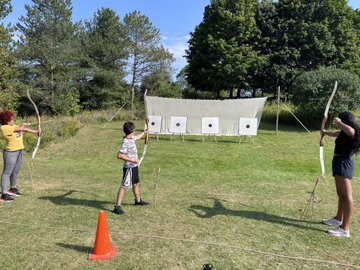
|
 
|
|
Art in the Wild
Using the forest as an artist’s studio, students investigate how the basic elements of design are found in the world around us. Using a variety of materials, which may include naturally found materials, digital cameras or watercolour paint, students will create artworks on site. Students will draw from their own experiences, imagination and the landscape of Albion Hills for inspiration.
Curriculum Connections:
- Art: Creating and Presenting; Reflecting, Responding and Analyzing
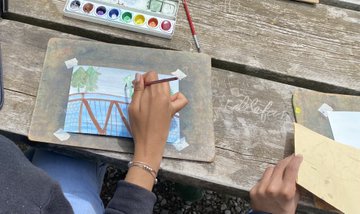
|
  
|
|
Biodiversity Debate
Students examine the structure and function of different levels of government in Canada and citizen interest groups and how they relate to each other. Students use research skills and critical thinking skills to extend their understanding of the rights of groups and individuals and the responsibilities of citizenship in Canada. Students also identify ways in which government and the responsibilities of citizenship directly affects their own lives, the health of the environment and our impact on climate change.
Curriculum Connections:
- Science and Technology: Biodiversity
- Language Arts: Transferable Skills; Oral and Non-Verbal Communication; Critical Thinking in Literacy
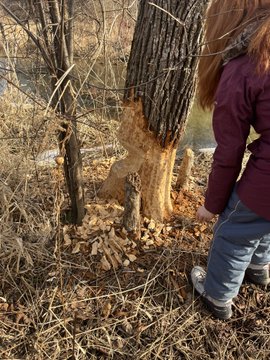
|
  
|
|
Biodiversity Hike
Because all living things are connected, maintaining diversity is critical to the health of the planet. Humans make choices that can have an impact on biodiversity. Depending on the season, this hike could include a visit to the community farm, the apiary, as well as a stop by the stream.
Curriculum Connections:
- Science and Technology: Biodiversity; STEM Investigation & Communication Skills
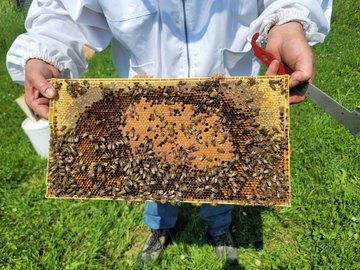
|
  
|
|
Compass Orienteering
Students are instructed on how to use a compass to navigate and to read/follow given bearings without the use of a map. In groups, they are then challenged to use these skills to complete an orienteering course within the park.
Curriculum Connections:
- Math: Geometric and Spatial Reasoning
- Science and Technology: STEM Applications, Connections and Contributions
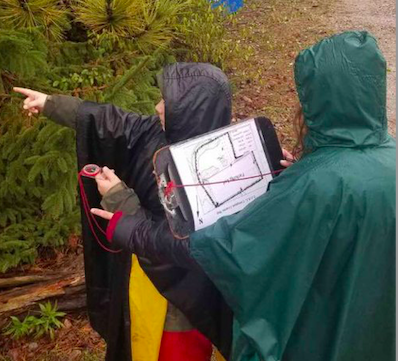
|
  
|
|
Cross Country Skiing
Learners are introduced to the history and equipment of cross country skiing before discovering the pleasure of this popular winter sport. Students will be instructed on the basics of cross-country skiing, before heading out to ski on the well maintained trails at Albion Hills. (WEATHER DEPENDENT- Winter)
Curriculum Connections:
- Health and Physical Education: Active Participation; Safety; Movement Skills and Concepts
- Social Studies: Diversity, Inclusiveness, and Canadian Identities; The Development of Communities in Canada
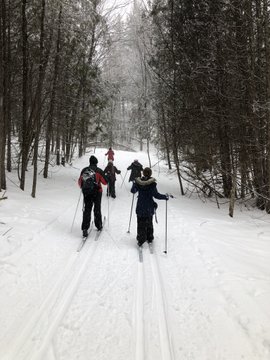
|

|
|
GPS
Moving beyond basic map reading, learners are taught skills necessary to use a GPS unit and are then challenged to locate “waypoints” posted around the local area of the Centre. This activity requires students to work in small groups to navigate their assigned route.
Curriculum Connections:
- Math: Geometric and Spatial Reasoning
- Science and Technology: STEM Applications, Connections & Contributions
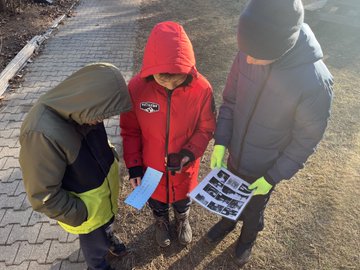
|
  
|
|
Instincts for Survival (Predator-Prey)
As an entire group, students take the place of various classes of living organisms in a simulation of the natural challenges faced within a forest ecosystem. Ecological principles such as food chains, food webs, biodiversity, and population survival, are simulated and discussed, in addition to how humans can impact the biodiversity of an ecosystem (e.g. conservation, polluting, poaching, disease)
Curriculum Connections:
- Science and Technology: Biodiversity
- Health and Physical Education: Active Participation; Safety; Movement Skills and Concepts
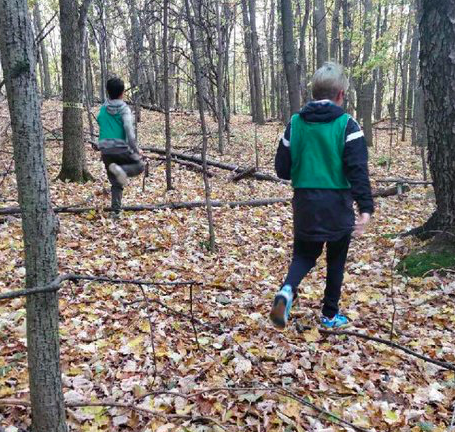
|
  
|
|
Learning Skills Development and Team Building
Using problem solving, collaboration, and communication, learners are challenged to complete a series of increasingly demanding tasks (e.g. trust exercises, speed challenges, low ropes challenge course). An emphasis is placed on Learning Skills development, student leadership, and character education traits.
Curriculum Connections:
- Language Arts: Transferable Skills; Oral and Non-Verbal Communication
- Health and Physical Education: Movement Skills and Concepts; Social Emotional Learning Skills
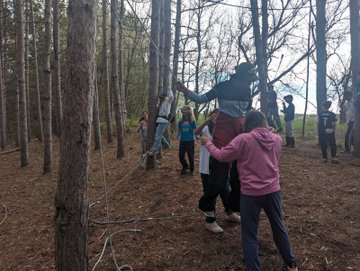
|
  
|
|
Maple Syrup
Learners will observe, discuss and contribute to the methods of maple syrup production through time, from the original Indigenous People’s system to present day practices. Students will have the opportunity to tap maple trees, hang sap collection buckets, and of course sample the finished product. (Offered Mid-February to April - Weather Dependent)
Curriculum Connections:
- Social Studies: Diversity, Inclusiveness, and Canadian Identities; The Development of Communities in Canada
- Science and Technology: STEM Investigation and Communication Skills; STEM Applications, Connections and Contributions
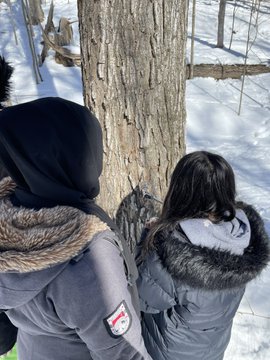
|

|
|
Mountain Biking
Our fleet of Trek Fat Bikes and CSA approved helmets are available for student use in this exciting program. Whether students have never ridden a bike or ride to school every day, basic safety and riding techniques are covered before a tour of the local trails. NO BIKING EXPERIENCE NECESSARY (Fall & Spring)
Curriculum Connections:
- Health and Physical Education: Active Participation; Safety; Movement Skills and Concepts
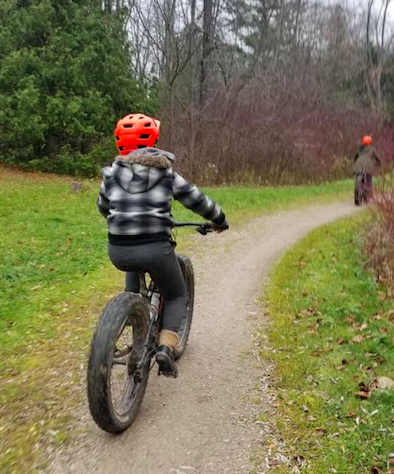
|
 
|
|
Nature Journaling
Students will explore the natural world that is all around us in this very unique program that combines art, math, and science. Students will learn the fundamentals of this lifelong activity with all materials supplied and the bonus of being able to take their work back to school with them. (Fall & Spring)
Curriculum Connections:
- Art: Creating and Presenting; Reflecting, Responding and Analyzing
- Science and Technology: STEM Investigation and Communication
- Social Studies: Diversity, Inclusiveness, and Canadian Identities; The Development of Communities in Canada
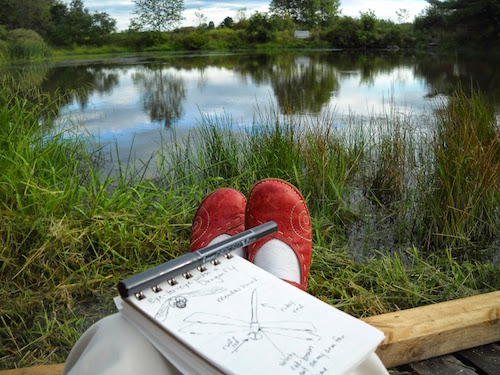
|
 
|
|
Nature Photography
In addition to digital camera basics, learners are introduced to the art of photography and incorporate the elements of design in their pictures with an emphasis on composing pictures with purpose. Photographs taken by students are shared with the teacher to be utilized in a variety of ways to support classroom learning.
Curriculum Connections:
- Art: Creating and Presenting; Reflecting, Responding and Analyzing
- Science and Technology: Biodiversity
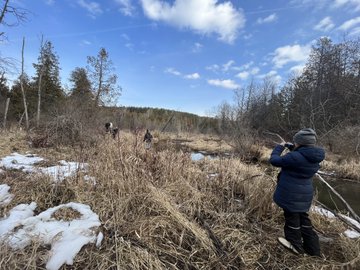
|
  
|
|
Score Orienteering
Students are taught map reading skills and are then challenged to locate markers posted outside near the Centre without the use of a compass. This activity requires students to work in small groups to navigate their assigned route using only a map of the surrounding area. (Modifications can be made to include compass use if requested)
Curriculum Connections:
- Math: Geometric and Spatial Reasoning
- Health and Physical Education: Active Participation; Safety
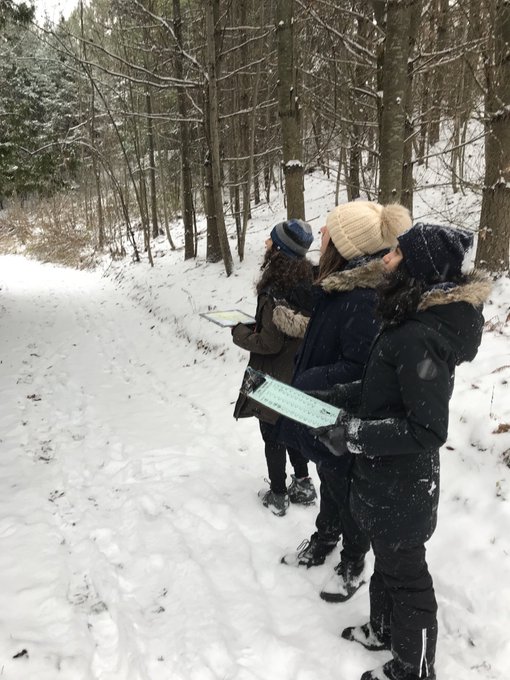
|
  
|
|
Sharing the Dish (Indigenous Focus)
Using the Dish with One Spoon Wampum (land sharing agreement) as a reference point, students will focus on relationships, learning styles and Indigenous knowledges. Students will learn how Indigenous ways of living in nature that were developed long ago continue today, and how an understanding of Indigenous Knowledges can help us live in a more sustainable way. This program is delivered by non-Indigenous staff.
Curriculum Connections:
- Social Studies: Diversity, Inclusiveness, and Canadian Identities; The Perspectives of Diverse Communities; The Development of Communities in Canada
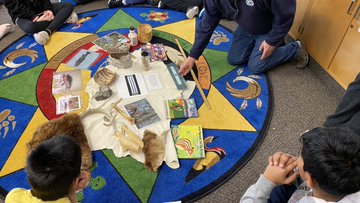
|
  
|
|
Stream Study
While exploring our stream, learners will discover that it is inhabited by a great variety of plant and animal species that are physically adapted to the aquatic environment in which they live. Using a dichotomous key, they will observe and classify the creatures they find while learning about the biodiversity that exists in the stream. (September to November and April to June, weather dependent)
Curriculum Connections:
- Science and Technology: Biodiversity
- Health and Physical Education: Active Participation; Safety
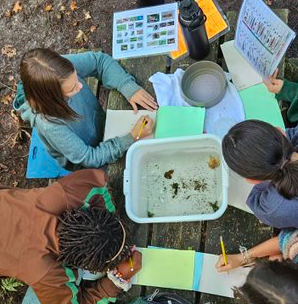
|
 
|
|
Survival Skills
Each group experiences a survival simulation which provides an opportunity to discover ways in which to meet their basic needs of air, shelter, water and food. Students also explore methods for making fire and living off the land.
Curriculum Connections:
- Health and Physical Education: Active Participation; Safety
- Science and Technology: STEM Investigation and Communication Skills
- Social Studies: Diversity, Inclusiveness, and Canadian Identities
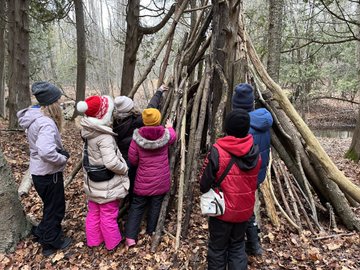
|
  
|
|
Trappers and Traders
Learners role-play either Indigenous groups or European fur traders and gather knowledge in order to obtain trade goods and to gain insight into the perspectives of the different groups of people. The activity culminates in the trading of the obtained goods in order for the Europeans to gain wealth or for the Indigenous peoples to make their daily lives easier. The history of the era is discussed to relate the importance of the Indigenous peoples in the fur trade and Canada’s development.
Curriculum Connections:
- Social Studies: Diversity, Inclusiveness, and Canadian Identities; The Perspectives of Diverse Communities; The Development of Communities in Canada
- Health and Physical Education: Social Emotional Learning Skills
|
  
|
|
|
|